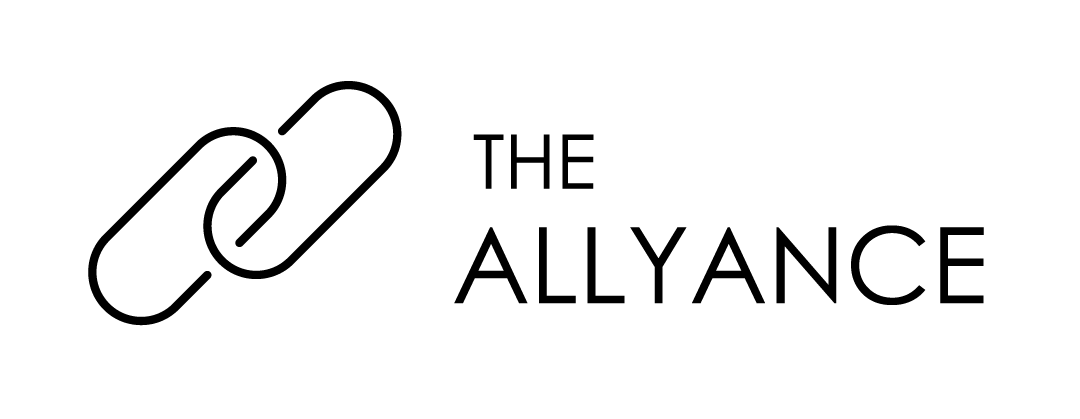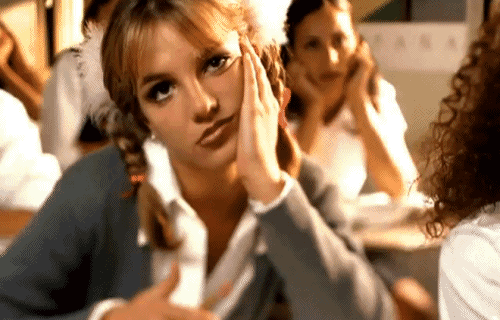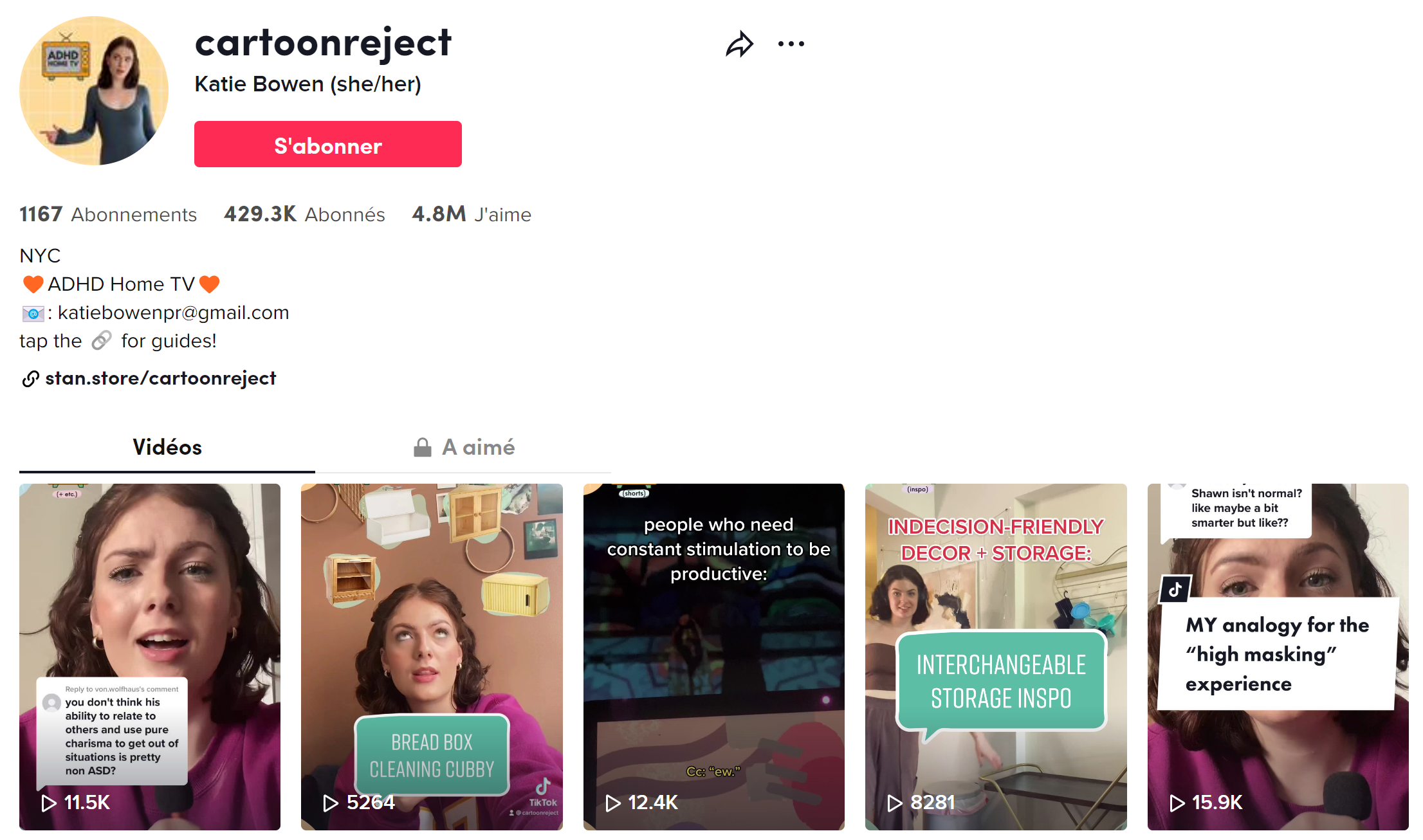The wild ride of finding out you have ADHD
💖 The purpose of The Allyance is to help both companies and candidates: companies wanting to reach excellence in hiring and candidates wanting to find the perfect companies.
🧠 Since its creation, The Allyance has always addressed neurodiversity within the content of the trainings we deliver. Today, we want to highlight the journey of Marie, who discovered (almost) on her own thanks to TikTok, she had ADHD. We hope her testimony will open fruitful conversations.
__ __ __Who are you ?
👉 My name is Marie, I'm 32 and I work in a middle school.
My job doesn’t really exist outside of France, we are somewhere between counselors and teachers’ aids. To sum up: we keep an eye on the kids during recess, free periods, lunch time, we handle the desk and phone, call parents when kids are sick, or absent, or did something reprehensible … and we also help organize official tests at the end of the year (setting tables, distributing copies, making sure no one cheats …). We also act as mediators during conflicts between kids, on top of managing the boarding school.
I will however be leaving that job at the end of the school year and taking some time off to work on the novel I’ve been dying to write for years now.
How did you find out you might have ADHD ?
Working in a middle school, I’m forced to keep up with some of the trends. So, when Tiktok became a thing that couldn’t be ignored anymore, I downloaded it to see what the fuss was about and also to check out the kind of harmful content the kids could potentially be exposed to on the app. After a few weeks of mindless scrolling, mind-numbing pranks, reckless challenges and silly dances I was too old for, the algorithm took me to another side of the app. See, Tiktok is more than the punchline of many jokes about Gen Z, it’s filled with niche pockets of interests and really diverse communities, from the LGBTQIA+ side to the crafting one.
I, however, ended up, amongst other things, on Mental Health Tiktok.
☝️ I was at a really low point in my mental health journey, struggling with depression and anxiety at that point, nothing was working, I felt slow and sluggish, I was barely making it through the days despite the medication and the regular psychologist appointments… and then I stumbled upon a video by a licensed therapist. She was listing symptoms of ADHD and something clicked, as I was putting down fingers to count how many of the ‘traits’ I was experiencing. Pieces of my childhood and teenage years fell in place, making sense of my early adulthood and current situation and although it took more exposure to the topic and a lot of research to finally come to the conclusion that I was onto something.That video was a real turning point.
How did you get the diagnosis ?
It was a struggle and a half to say the least. At that point, my family doctor had referred me to a psychiatrist to adjust the medication that wasn’t working and seemed to make me even more anxious. I had panic attacks about not being able to enjoy myself because the meds were toning me down so much that all I could do was sleep and be mad that I wasn’t even able to enjoy a show, a book...
💆♀️ I had to jump through a ton of hoops to be heard, to be taken seriously but luckily, I ended up with a psychiatrist that was fresh out of school and informed on those always evolving topics. Sadly, she moved but not before prescribing me a series of tests performed by a neuropsychologist to figure out if I indeed have ADHD. Given all the symptoms I was showing and had been showing for years, the specialist wondered how I had managed to go under the radar for so long but as a 90s kid, female at that, I didn’t fit the idea of what a kid with ADHD ‘looked like’ back then. IE, I wasn’t a rambunctious little boy running around and unable to sit still in class.
💊 To this day, even if I do have my diagnosis, I’m still waiting to be able to see a specialist of ADHD in adults. My current psychiatrist is very old school and despite the diagnosis presented to her by a respected source, she doesn’t truly believe me and is reluctant to give me the proper medication to help me manage my symptoms.
That is to say that even in the medical field and with trained specialists, getting a proper diagnosis and a proper treatment isn’t easy, and access to it is a real struggle.
Illustration from the Instagram account ADHD Empowerment Coaching
But what is ADHD exactly ?
Look, I don’t have the medical credentials to explain the deep imbalance of chemicals that goes on into an ADHD brain but I’ll do my best to put it in layman’s terms.
▶️ ADHD (or Attention Deficit Hyperactivity Disorder) is in its core, a constant search to compensate for a lack of dopamine. Dopamine is a neurotransmitter that deals with motivation, productivity and concentration. People whose brains have a normal production of dopamine do not have to seek it out to complete tasks, no matter how tedious or painful. As an example nobody likes filing taxes or taking the trash out but most people do it anyways🚮
For us folks with ADHD, anything slightly boring seems undoable, so we push it away, put it on the furthest back burner possible until we forget about it and then have to complete the task at the last minute in a frantic but efficient manner. Because guess what, having 10 minutes to fill out a due form produces cortisol (the stress hormones) which boosts adrenaline production and therefore brings dopamine to the table because who doesn’t like the God complex feeling of achieving a task two minutes before its deadline ? Neurotypical people, that’s who doesn’t like that.
So we get labeled again. This time, on top of being lazy, we’re forgetful, irresponsible and unreliable, procrastinators that don’t take their jobs seriously. Negative traits that destroy the self-esteem and productivity of anyone who is already struggling with concentration when really, we get the job done. We just work in a manner that is unconventional. And exhausting. Not unlike most aspects of having ADHD. Getting distracted by the conversation at the table next to you at the restaurant so much so that you don’t pay attention to your date, or being stuck in ADHD paralysis because you have so much energy and so many tasks to accomplish that you don’t even know where to start, or even seeming rude because your brain doesn’t want you to forget an important point so you cut people off when they’re talking, otherwise by the time they’re finished, you won’t remember what you were about to say…
✅ But people with ADHD have the super power of hyper-focusing and finishing tasks that could take two days in a matter of hours, when surrounded by the right things, when catered to properly. We are creative, we think outside of the box, and even if we get irritated by noises nobody else notices, we also compensate for the weakest members of our team so no one gets left behind and everything is under control. That might be a coping mechanism, it might be exhausting to think of everything, to have a mind that sounds like a very busy beehive but it sure is efficient when fostered and taken care of. Be good to your ADHDers and they’ll go above and beyond for you.
Illustration from the Instagram account @unconventionalorganisation
How exactly do you help someone with ADHD in a work setting ?
— Communication should be to the point most of the time. Don’t get lost in long drawn out emails, bullet points will be much more efficient. Otherwise it’s like digging for clues in a virgin jungle. Insert ‘Oh, I got distracted by a butterfly’ cliché joke about ADHD here, except the butterfly is a typo, for example.
— Let them do something else whilst working. I don’t mean let your workers kid around on Pokemon Go during office hours but offer accommodations such as standing or kneeling desks, ball chairs, cushions or bean bags on the floor if possible. It may seem strange but engaging your core muscles to stay up right helps with the restless energy and therefore allows the person to focus more easily. Another good idea might be spinny chairs without armrests, spinny stools or even footrests. Most neurodivergent people struggle to sit nicely at a desk all day.
— Neutral colors and cohesive decor that won’t distract from the work. The ideal set up is vertical decor on either side of the screen so that the person’s eyes are naturally drawn to the task. To further that, not having to rummage through the entire office to find supplies (or even a free outlet) will let the person’s work flow better.
— Give them a recess. Yes, like in school. Especially if you have a nice outdoor space by the office or some kind of games in the lobby. The person will return from that break refreshed and riding a wave of motivation and productivity that will allow them to finish the work quicker than if they hadn’t had the break. It may seem counter productive but if you see a colleague in ADHD paralysis, distract them with something happy (impromptu dance party anyone?) and watch them go back to work with the efficiency of a superhero.
— Don’t overdo it with the to-do lists. Most ADHD friendly planners have two to three ‘main goals’ per day. The person will do more than that but a long to-do list will seem daunting and give them the desire to run away as far as possible from you. In the same vein, you can use emojis to signify which tasks should be prioritized. Put a red pin emoji next to something and watch it be completed before lunch, especially if the person gets to check a ‘done’ box at the end.
— Don’t frown at the accommodations they bring themselves. Fidget toys are a great way to stay focused during a meeting or whilst working. They’re most of the time less noisy than taping a pen in a repetitive manner. Another great tool for people with ADHD, especially those working in a crowded area are Loop earplugs. The brand Loop has a line of earplugs that only cancels out 18 decibels. It allows the person to still hear a direct conversation but tunes out things like coffee machine or elevator noises.
ADHDers are dealing with an invisible disability that is often paired with anxiety but we are not a burden, nor a liability. We are productive thinkers that will come up with solutions to problems before they even occur, we might look messy but we know where our stuff is, we may interrupt you but it’s not out of rudeness, really, it is just because otherwise we won’t remember what we had to add to your pertinent point. Being wired differently makes life harder, especially in the early days of getting your diagnosis but it’s neither a curse nor a lack of passion in what we do, we just like shiny things so if you can make our work life interesting, we’ll do wonders.
How did it impact your life ?
🥄 It impacted my life in many ways, from my academic career and the different jobs I had, to my relationships and everyday life because it turns out: it takes a whole lot of “spoons” in order for me just to function.
From having to overcome executive dysfunction to manage the most ‘mundane’ self-care tasks to being stuck in paralysis for hours, wondering where the day went, it’s not easy having ADHD. It took me years to realize I was neither lazy nor a slob, that the chemicals in my brain simply made me different from many of my peers.
It’s not indolence, or a lack of interest that makes me avoid tasks for days, weeks, months. If it were, it would only apply to lackluster activities, such as cleaning or administrative tasks, but it’s not. It took me a while to accept that maybe my brain is just too noisy at times, so much so that even hobbies and fun things are difficult to focus on.
It takes even more time to learn how to work with the neurological pathways I have rather than the ones neurotypical people wish I were equipped with.
TikTok from Cartoonreject
Do you have some hacks you can share for people with ADHD ?
🥁 I do not have tips for ADHDers per say, other than “keep trying if you’re not being heard”. I can however give a few tips and resources for employers and team managers that would like to make their work environment friendlier to people with ADHD :
Opening yourself to content creators talking about neurodiversity is a great way to understand the different challenges the people in your team might be facing.
Anything else you wish to add ?
It may seem “trendy” these days to see individuals being diagnosed with ADHD. Indeed, more and more people are coming out with this diagnosis but it isn’t a trend. What is spiking the visibility of ADHDers is the access to resources and the constant evolution of our understanding of that specific neurodivergency. For years, girls weren’t even tested for it, as if it were impossible for them to have it when really, we just showed different symptoms or were more efficient at hiding our struggles. The same thing is also happening with people on the autistic spectrum, as it is very recently that scientists realized that girls and women were better at ‘masking’ (mimicking the behaviors of people around you to fit in) than boys and men with the same diagnosis.
📍 In the end, the only thing that is truly ‘trendy’ is finally paying more attention to invisible struggles that affect millions of people on a daily basis.
———
✔️ Want more?
If you want to talk about a topic connected to diversity, equity, belonging and inclusion, feel free to reach out to The Allyance team.









